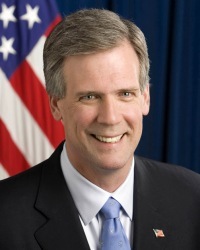A Quote by Tedros Adhanom
The fight against HIV/AIDS cannot be won unless countries take ownership of protecting and supporting the health of communities both near and far.
Quote Topics
Related Quotes
We cannot fight against collectivism, unless we fight against its moral base: altruism. We cannot fight against altruism, unless we fight against its epistemological base: irrationalism. We cannot fight against anything, unless we fight for something--and what we must fight for is the supremacy of reason and a view of man as a rational being.
I spent the past week here in India getting a sense of the reality of HIV and AIDS in people's lives. Fathers and mothers are dying, leaving children with no support. Stigma and discrimination is ruining the family lives. There is an urgent need for education, information, and increased awareness of HIV and AIDS. The response needs to be now. We cannot afford to become fatigued.
I am sure it is in the medical textbooks, there are many things that cause immune deficiency and you will find therefore in the South African HIV and AIDS programme, that it will say that part of what we have got to do is to make sure that our health infrastructure, our health system is able to deal adequately with all of the illnesses that are a consequence of AIDS.































